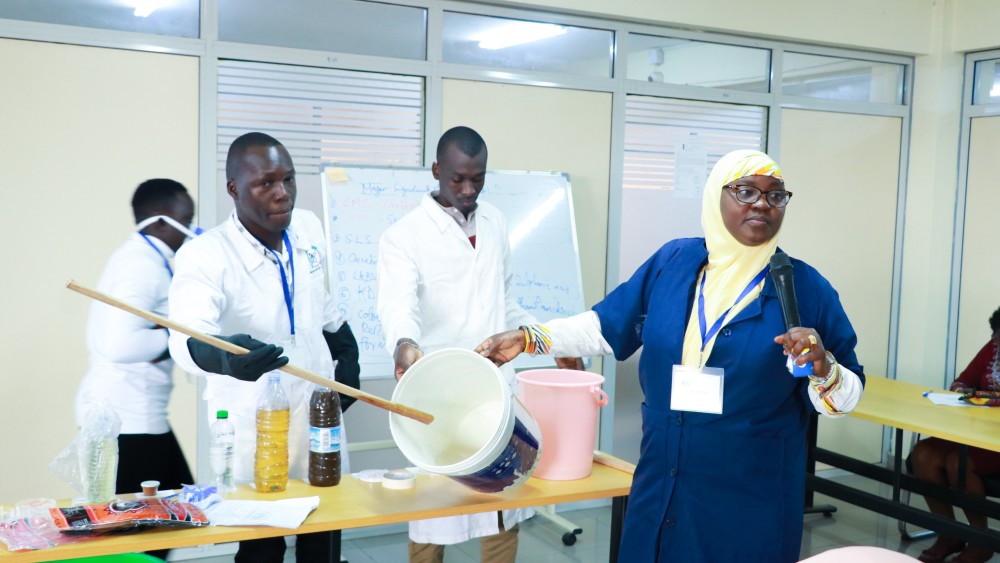
Jul
CoEEI Holds Hands-on Training on Liquid Dishwash Production
July 24, 2024, 3:55 pm
| Title: | Factors Affecting Adherence to Antiretroviral Therapy among HIV Positive Adults Living in Bison Slums in Tororo Municipality, Tororo District, Eastern Uganda |
| Author(s): | Faustine Ochom |
| Year | 2023 |
| Publisher: | IAA Journal of Biological Sciences |
| URI: | https://publications.kiu.ac.ug/publication-page.php?i=factors-affecting-adherence-to-antiretroviral-therapy-among-hiv-positive-adults-living-in-bison-slums-in-tororo-municipality-tororo-district-eastern-uganda |
| File: | |
| Keywords: | adherence antiretroviral therapy HIV AIDS ARV associated factors |
As of 2020, the global HIV burden affected approximately 37.7 million people, with 36.0
million being adults, including 1.5 million new infections in 2020. By June 2021, about
28.2 million individuals were accessing antiretroviral therapy (ART), representing
approximately 73% of those living with HIV, and the majority of them resided in the
African region. This study aimed to explore the factors that impact adherence to
antiretroviral therapy. Conducted as a descriptive cross-sectional study, data was
collected using questionnaires as the primary instruments. The analysis of data was
carried out using the Statistical Package for Social Sciences (SPSS) and the results were
presented in tabular form. The study identified that adherence to ART was notably
higher among those who were employed (88.8%), did not use drugs and alcohol (87.2%),
earned an income above 200,000/= per month (90.5%), had knowledge about HIV/AIDS
therapy (85.4%), and were informed about the specific ARV drugs in use (85.4%).
Moreover, individuals who believed their religion openly supported people living with
HIV (86.9%), did not think that HIV could be cured through spiritual intervention (84.4%),
had never sought spiritual healing (86.1%), followed a religion that did not discourage
ARV use (82.6%), and did not experience religious interference with their ARV intake
(84.3%) exhibited higher adherence rates. While the study reveals substantial adherence
to ART, it also underscores that the WHO's recommended adherence target has yet to be
fully attained. Employment status, substance use, income level, knowledge, as well as
religious and cultural beliefs were identified as influential factors affecting adherence
to ARV therapy. These findings have important implications for developing
interventions and support systems to further enhance adherence rates among
individuals living with HIV

Kampala International University,
Box 20000, Ggaba Road, Kansanga, Kampala